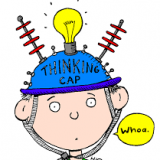The Doubter Is a True Man of Science
The phrase “The doubter is a true man of science” reflects the essence of scientific inquiry: questioning assumptions, challenging established norms, and seeking truth through evidence and experimentation. Doubt is the engine that drives progress in science, allowing humanity to uncover new insights and push the boundaries of what is possible. This statement underscores that science is not about accepting ideas at face value but about questioning, testing, and continuously refining our understanding of the world. Doubt, far from being a weakness, is a strength that drives the progress of human knowledge.
Doubt as the Foundation of Science
Science is rooted in curiosity and skepticism. Unlike blind acceptance, science thrives on the willingness to ask, “Is this true?” and to investigate claims rigorously. Doubt encourages the exploration of alternate explanations and the refinement of theories, ensuring that scientific knowledge evolves over time.
For example, consider Nicolaus Copernicus and his revolutionary heliocentric theory. In the 16th century, the geocentric model, which placed Earth at the center of the universe, was widely accepted. Copernicus, however, doubted this long-held belief. By carefully observing celestial movements, he proposed that the Sun, not Earth, was the center of the solar system. His skepticism of established ideas paved the way for further advancements by scientists like Galileo and Kepler, fundamentally altering our understanding of the cosmos.
Similarly, Charles Darwin doubted the prevailing idea of creationism and sought a scientific explanation for the diversity of life. His groundbreaking theory of evolution through natural selection, presented in On the Origin of Species, reshaped biology and offered a new framework for understanding life on Earth.
At its core, science is a method of inquiry designed to explore and explain natural phenomena. It operates on the premise that our understanding of the world is always provisional, subject to change as new evidence emerges. Doubt, therefore, is not an obstacle to knowledge but a vital part of the process. It fuels curiosity, encourages investigation, and challenges assumptions, ensuring that conclusions are grounded in evidence rather than belief.
The Role of Doubt in the Modern Era
In the modern age, doubt continues to fuel progress, as demonstrated by innovators like Elon Musk. Musk exemplifies the principle that questioning the status quo is essential for scientific and technological advancement. For instance, he doubted the traditional assumptions about the cost and feasibility of space exploration. With SpaceX, Musk challenged the notion that space travel is prohibitively expensive, pioneering reusable rocket technology and significantly reducing costs. His vision of colonizing Mars is rooted in questioning humanity’s long-term survival on Earth and exploring solutions beyond our planet.
Similarly, Musk’s work with Tesla stems from doubting the sustainability of fossil fuels. By questioning conventional energy systems, he has pushed the development of electric vehicles and renewable energy technologies, advancing the global transition toward sustainability. Musk’s success highlights how doubters are not merely critics but visionaries who identify problems and work relentlessly to solve them.
Doubt and Visions of the Future
Looking to the future, doubt will remain central to scientific progress. Innovations in fields like artificial intelligence (AI), biotechnology, and quantum computing are driven by researchers who question existing limitations and envision new possibilities. For instance, scientists working on AI doubt the assumption that machines are inherently limited to performing predefined tasks. Their skepticism fuels efforts to create general AI systems capable of independent reasoning and learning, potentially revolutionizing industries from healthcare to education.
In the realm of medicine, doubt drives the search for solutions to incurable diseases. Gene-editing technologies like CRISPR emerged because researchers doubted the inevitability of certain genetic disorders. By challenging assumptions about the limitations of biology, they have opened up new frontiers in personalized medicine and disease prevention.
Historical Lessons and Modern Challenges
While doubt has propelled humanity forward, it is important to distinguish productive skepticism from destructive cynicism. Historical examples show that some doubters faced significant resistance. Galileo, for instance, was persecuted for challenging the Church’s geocentric view, despite his evidence-based conclusions. Similarly, modern innovators like Musk often face skepticism and criticism for their ambitious goals. Yet, it is their willingness to persist in the face of doubt that sets them apart as true visionaries.
However, excessive or misguided doubt can hinder progress. For example, climate change denial, rooted in unfounded skepticism, delays critical action to address a global crisis. Productive doubt, in contrast, is grounded in evidence and open-minded inquiry, aiming to advance knowledge rather than obstruct it.
Conclusion
“The doubter is a true man of science” captures the essence of scientific exploration: the courage to question, the discipline to investigate, and the vision to create. From Copernicus and Darwin to Elon Musk and the pioneers of the future, doubters have reshaped our understanding of the universe and expanded the realm of what is possible. By embracing skepticism as a tool for progress, humanity can continue to innovate, solve complex challenges, and build a better future for generations to come. Doubt is not an obstacle but a catalyst—a reminder that the quest for knowledge begins with the simple yet powerful question: “What if there’s a better way?”












